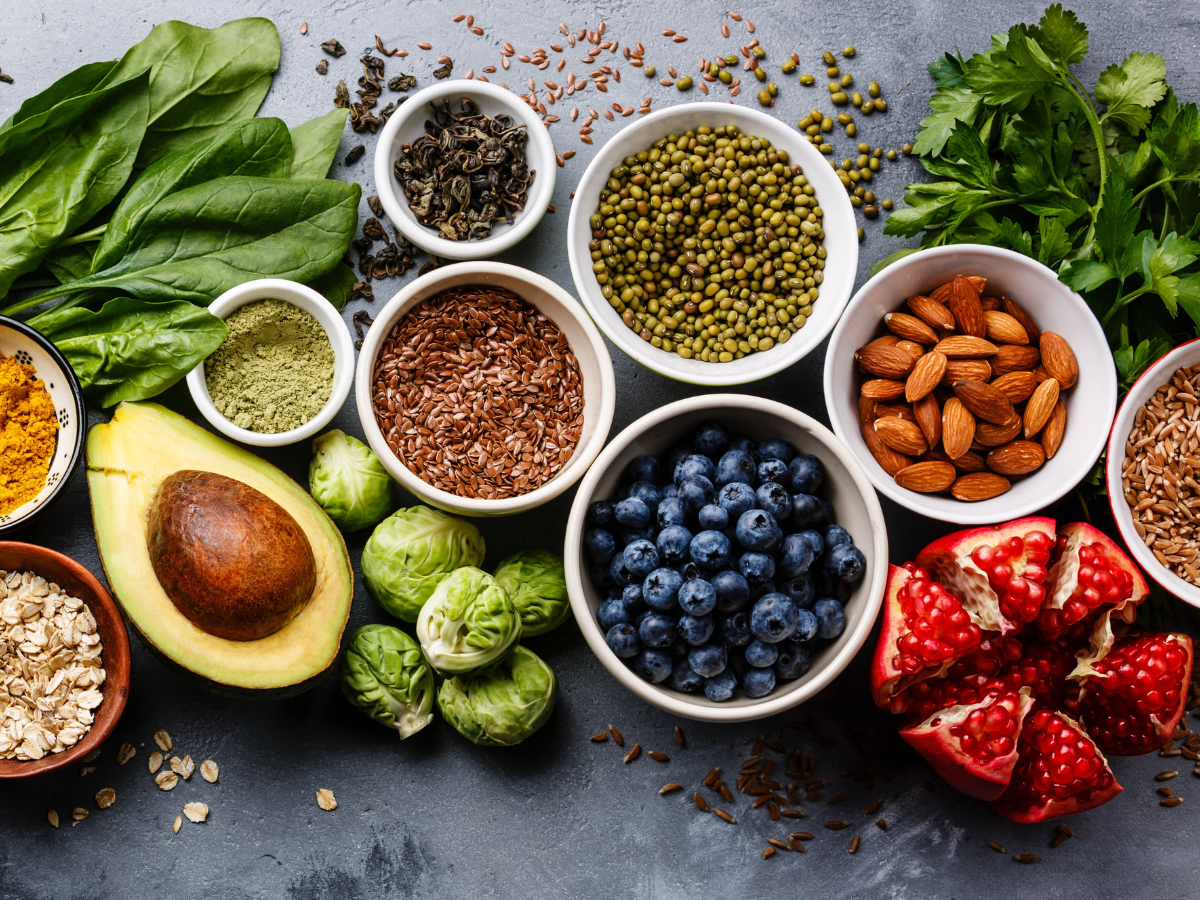When it comes to staying healthy, your immune system is your first line of defense—and what you put on your plate can make all the difference. Whether you’re facing cold season, recovering from burnout, or simply trying to stay ahead in the wellness game, the right foods can help keep your body strong and resilient.
Forget quick fixes and costly supplements. Nature has already packed a powerful punch in everyday ingredients that bolster your immune response, reduce inflammation, and maintain your energy levels. From vitamin-rich fruits and antioxidant-loaded vegetables to gut-friendly probiotics and immune-boosting spices, these foods work behind the scenes to keep you in fighting shape.
Ready to provide your body with the fuel it truly needs? Here are 21 immune-boosting foods you should start eating today—because robust health begins in the kitchen.

Oranges, grapefruits, lemons, limes, and tangerines
When it comes to immune support, vitamin C is the classic choice—and citrus fruits are abundant in it. These zesty all-stars boost your body’s natural defenses and help you feel sharp all year long.
Benefits:
- High in Vitamin C, which supports the production of white blood cells.
- Rich in antioxidants that protect against cellular damage.
- Contains flavonoids with anti-inflammatory properties.
- Naturally, hydrating and easy to incorporate into your daily diet.
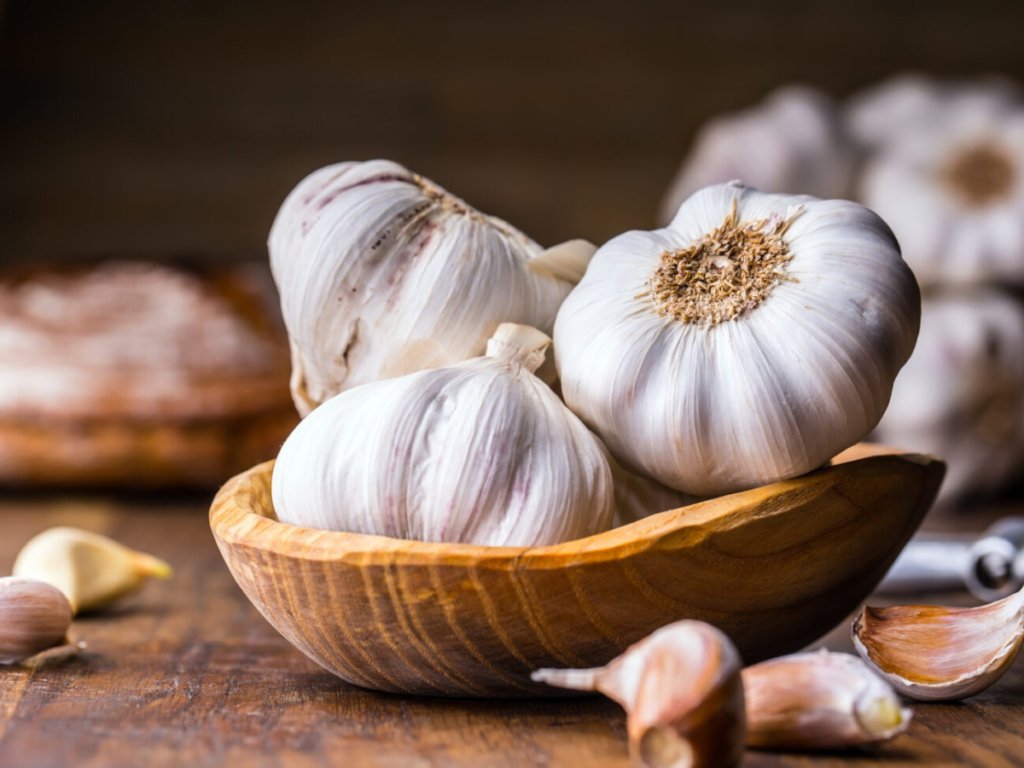
Garlic serves more than just flavour; it has been used for centuries for its medicinal properties. Thanks to its sulfur-containing compounds, like allicin, garlic provides a powerful boost to your immune system.
Benefits:
- Contains Allicin, Boosts Immune Function.
- Possesses antibacterial and antiviral properties.
- May Lower Blood Pressure, Improve Circulation.

Ginger adds a bold kick to tea and stir-fry and has been used for centuries in traditional medicine. It’s a natural powerhouse for battling colds, fighting inflammation, and maintaining body balance. Its active compound, gingerol, offers antioxidant and anti-inflammatory benefits, essential for immune support during flu season. Versatile as well, it can be sliced for tea, blended into smoothies, or grated over savoury dishes for a spicy wellness boost.
Benefits:
- Gingerol: A Potent Anti-Inflammatory & Antioxidant.
- Reduces oxidative stress, weakening immunity.
- Eases nausea and soothes sore throats, ideal for colds.
- Promotes Healthy Digestion, Essential for Immune Regulation.
- May Help Reduce Muscle Pain From Inflammation.
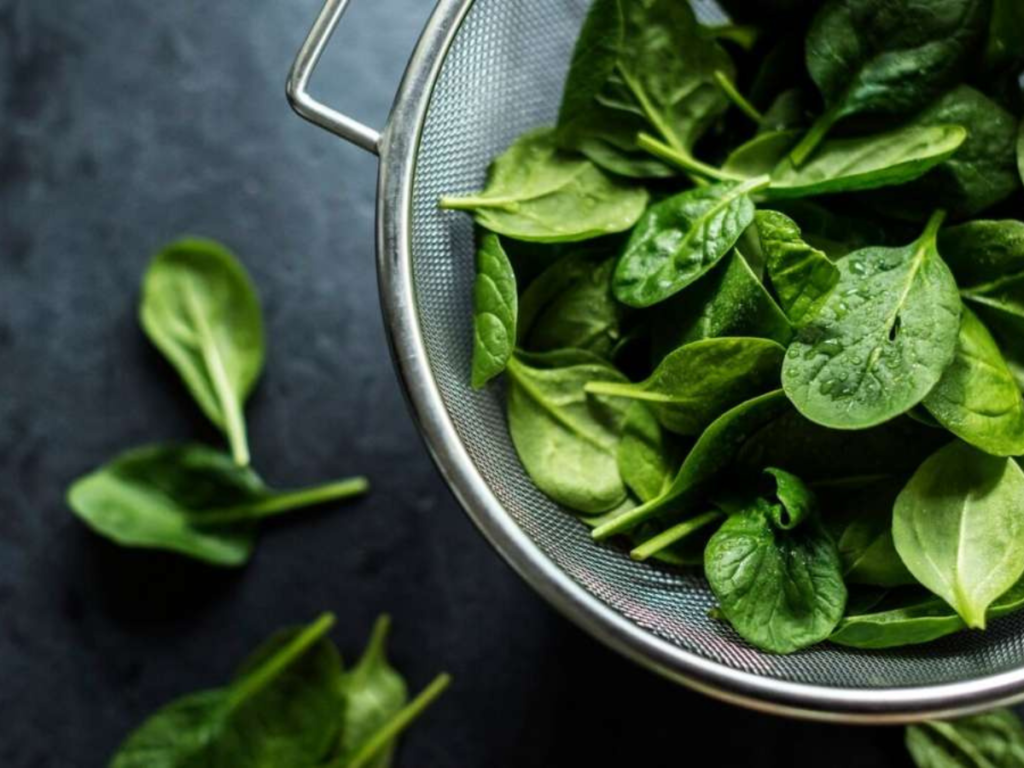
Spinach doesn’t just enhance your plate; it’s packed with immune-boosting nutrients like vitamin C, vitamin A, iron, and antioxidants that help fight infection and reduce inflammation. Plus, it’s low in calories and can effortlessly fit into meals—blend it in a smoothie, sauté with garlic, or mix into an omelette. Light cooking releases even more nutrients, making spinach a powerful ally in your daily routine.
Benefits:
- Rich in Vitamin C and beta carotene, boosts immunity.
- Rich in antioxidants that neutralize free radicals.
- Rich in iron, vital for oxygen transport and energy.
- Contains magnesium for muscle and nerve health.
- Delivers Vitamin A to strengthen skin and mucous membranes, the body’s first defense.
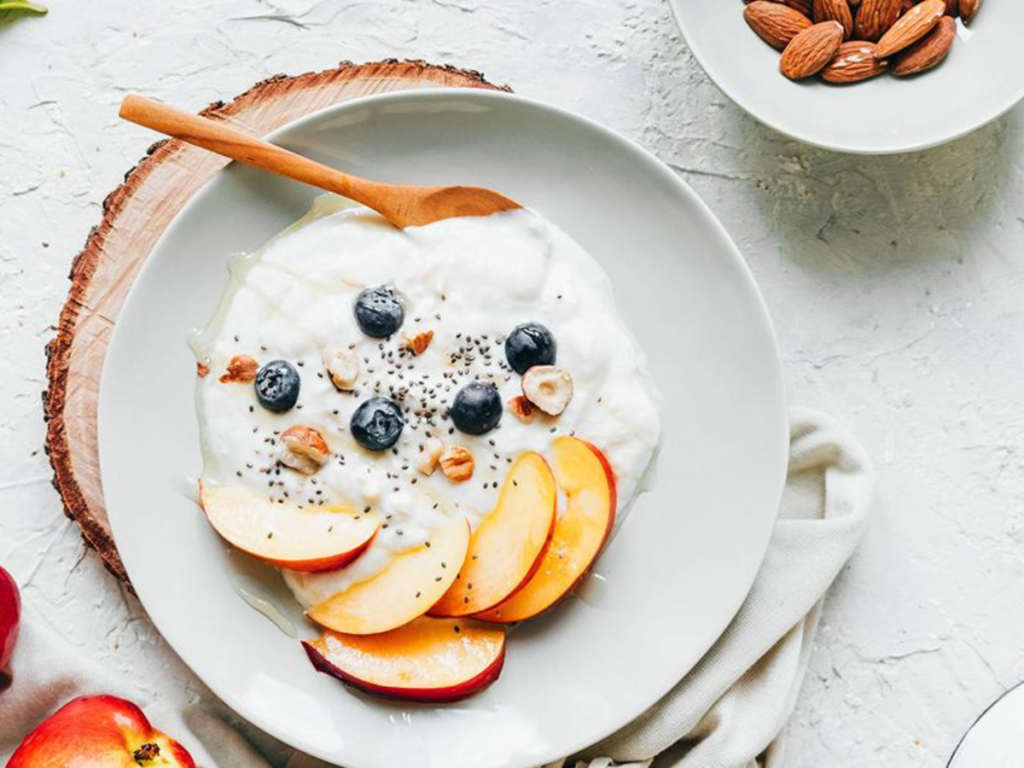
To strengthen your immune system, focus on your gut—Greek yogurt is an excellent choice. Loaded with active probiotics, it balances your gut microbiome, improving digestion, immunity, and mood. Greek yogurt offers more protein, a thicker texture, and less sugar than regular yogurt, plus it provides vitamin D, crucial for immune regulation.
Incorporate it into smoothies, blend it with fruit and honey, or use it as a foundation for dips and sauces. No matter how you prefer it, Greek yogurt offers a simple and versatile method to enhance your body’s defenses every day.
Benefits:
- Includes Probiotics Supporting Gut Health and Immune Function
- A source of vitamin D that helps regulate the immune response.
- Delivers calcium and protein to support bones and muscles.
- Supports Gut Health for Defense
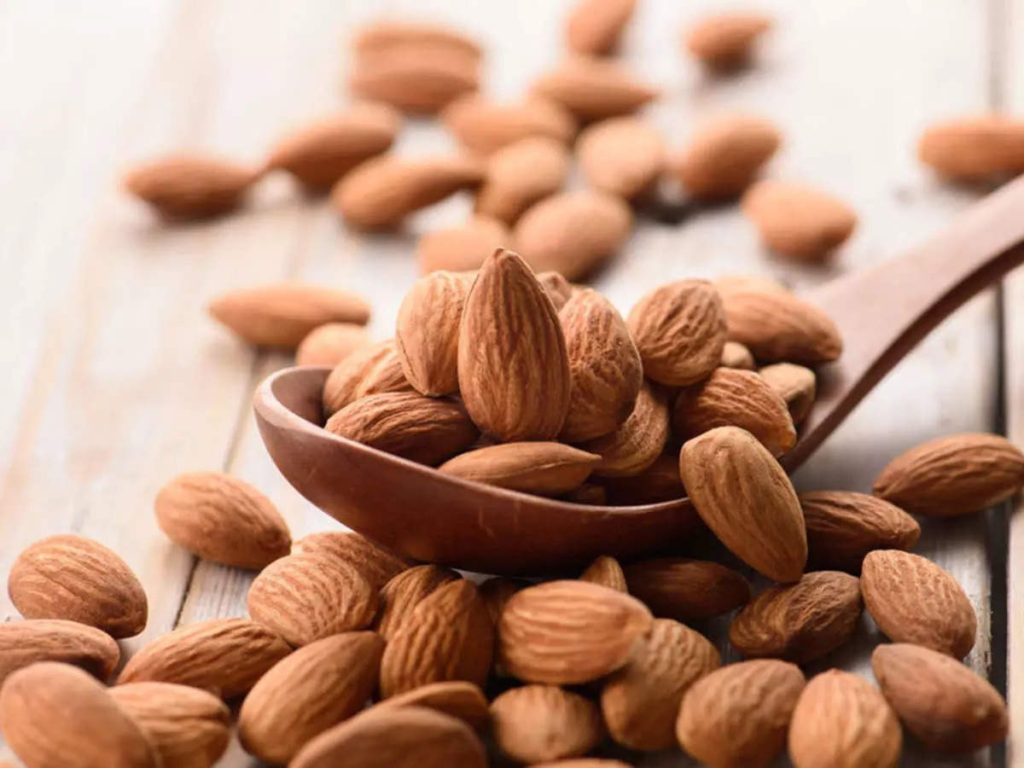
When it comes to immune support, vitamin C usually steals the spotlight—but vitamin E is equally important. Almonds are among the best natural sources of this antioxidant powerhouse. Just a small handful each day can help your body fend off harmful free radicals and support the integrity of your cells. Plus, they’re packed with healthy fats that assist your body in absorbing fat-soluble vitamins more effectively.
Benefits:
- High in vitamin E, an antioxidant for immunity.
- Contains healthy fats boosting nutrient absorption
- Plant-Based Protein for Energy
- Contains magnesium to regulate immunity.

Broccoli stands out as one of the most nutrient-rich vegetables available. Packed with vitamins A, C, and E, fibre, and antioxidants, it provides a comprehensive boost to your immune system. Whether you steam, roast, or add it to a stir-fry, broccoli significantly enhances your immune support.
Benefits:
- High in vitamin C and beta carotene, enhancing immunity.
- It contains sulforaphane, a compound that promotes cellular defense.
- It contains fibre for gut health and improved digestion.
- Offers vitamin K, which promotes bone and cardiovascular health.

Do you think citrus is the king of vitamin C? Think again. Red bell peppers contain about twice as much vitamin C as oranges, along with beta carotene, which your body converts into vitamin A. They are crunchy, colourful, and ridiculously easy to snack on or add to almost any dish.
Benefits:
- High in vitamin C, vital for immunity.
- Rich in beta carotene for health.
- Rich in antioxidants that lessen inflammation.
- Boosts collagen for strong, protected skin.
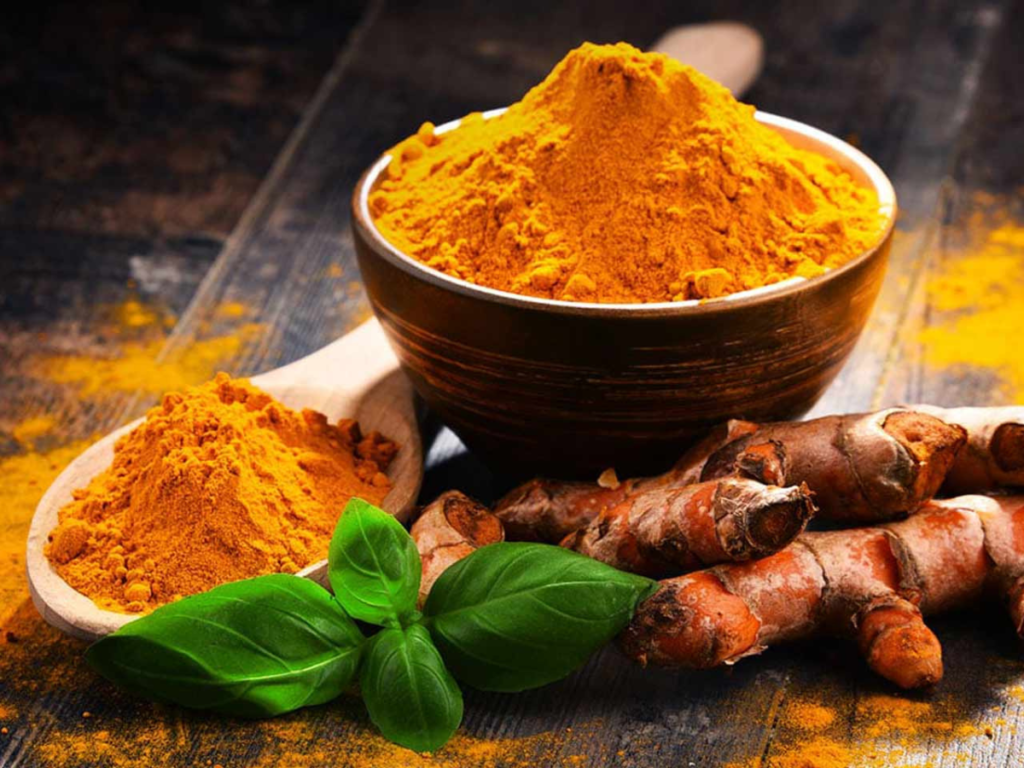
Known for its vibrant yellow color and earthy flavor, turmeric is a longstanding favorite in traditional medicine. Its active compound, curcumin, has powerful anti-inflammatory effects and has been shown to help modulate the immune system. Add it to curries, blend it into smoothies, or stir it into warm milk for a comforting boost.
Benefits:
- Contains curcumin, an anti-inflammatory and antioxidant.
- Reduces chronic inflammation, supporting immunity.
- May help improve symptoms of arthritis and muscle pain.
- Boosts the activity of immune-modulating cell activity.
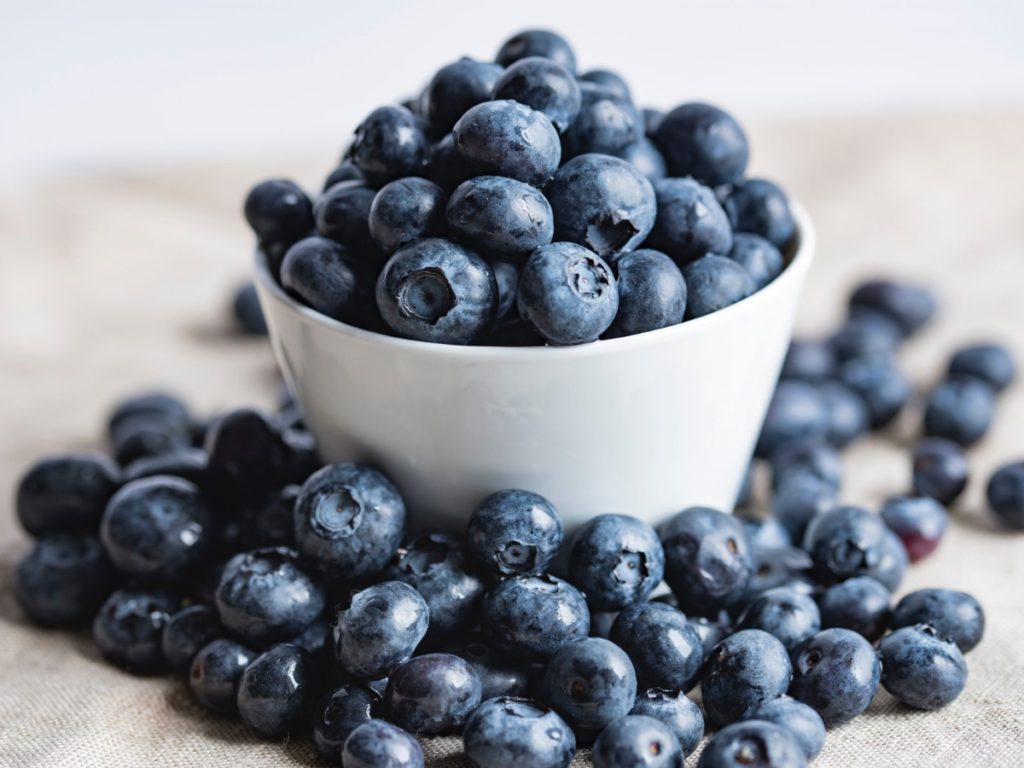
Don’t be fooled by their size—blueberries have immune-boosting properties. Loaded with anthocyanin, these deep blueberries help protect the body against oxidative stress while providing your immune cells with the support they need to remain strong. They’re excellent in smoothies, yogurt, or eaten straight from the carton.
Benefits:
- High in antioxidants, especially anthocyanins.
- Support healthy immune cell communication
- May reduce DNA damage and aging effects
- Benefits brain health and inflammation
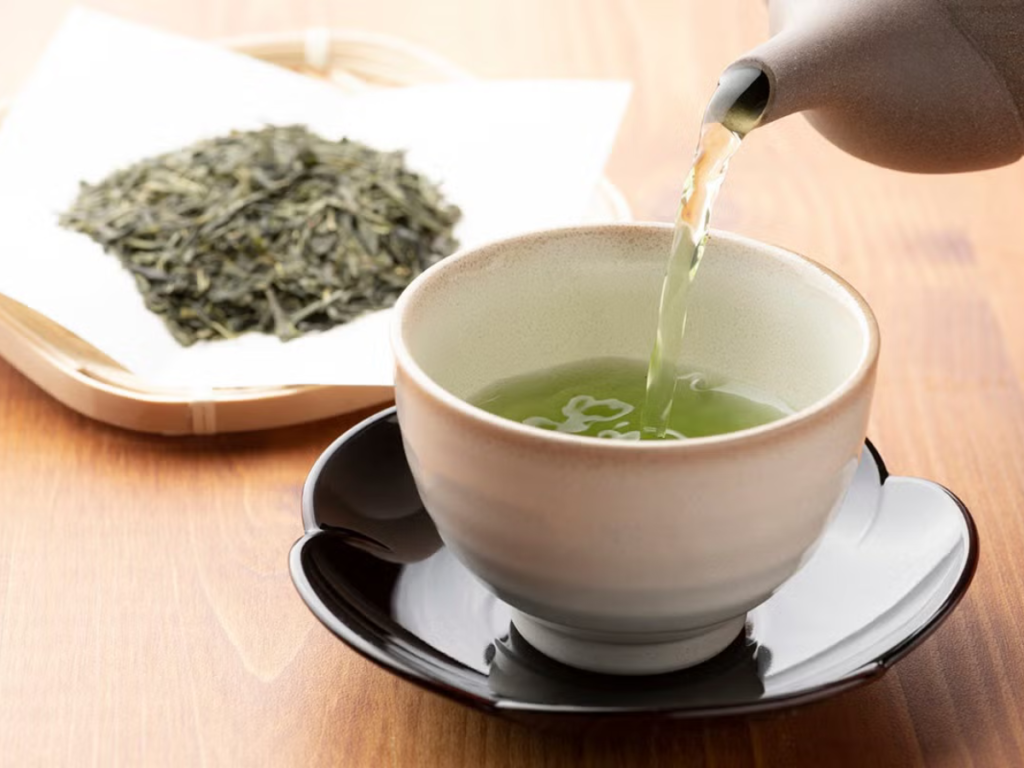
More than just a soothing beverage, green tea is packed with plant-based compounds that help keep your immune system sharp. It is rich in Epigallocatechin Gallate (EGCG)—a potent antioxidant that enhances immune function. Green tea also contains L-theanine, an amino acid that aids in producing germ-fighting compounds in your T-cells.
Swap your second cup of coffee for a hot cup of green tea, or enjoy it iced as a refreshing, health-boosting alternative.
Benefits:
- Rich in antioxidants that guard against cell damage.
- Contains EGCG to support immunity.
- Boosts Metabolism And Supports Fat Burning.
- Includes L-Theanine, which aids in immune cell production.

Cold-water fish such as salmon are rich in omega-3 fatty acids, which are essential for reducing inflammation and maintaining optimal immune system function. Additionally, salmon provides a great source of vitamin D, selenium, and protein, all crucial for building a robust defense system.
Grill, bake, or enjoy it raw in sushi—this superfish serves triple duty for your heart, brain, and immune health.
Benefits:
- High in omega-3 fatty acids, which reduce chronic inflammation.
- Excellent Source of Vitamin D for Immune Regulation
- Contains Selenium, a trace mineral that supports immunity.
- Provides Lean Protein for Muscle and Tissue Repair
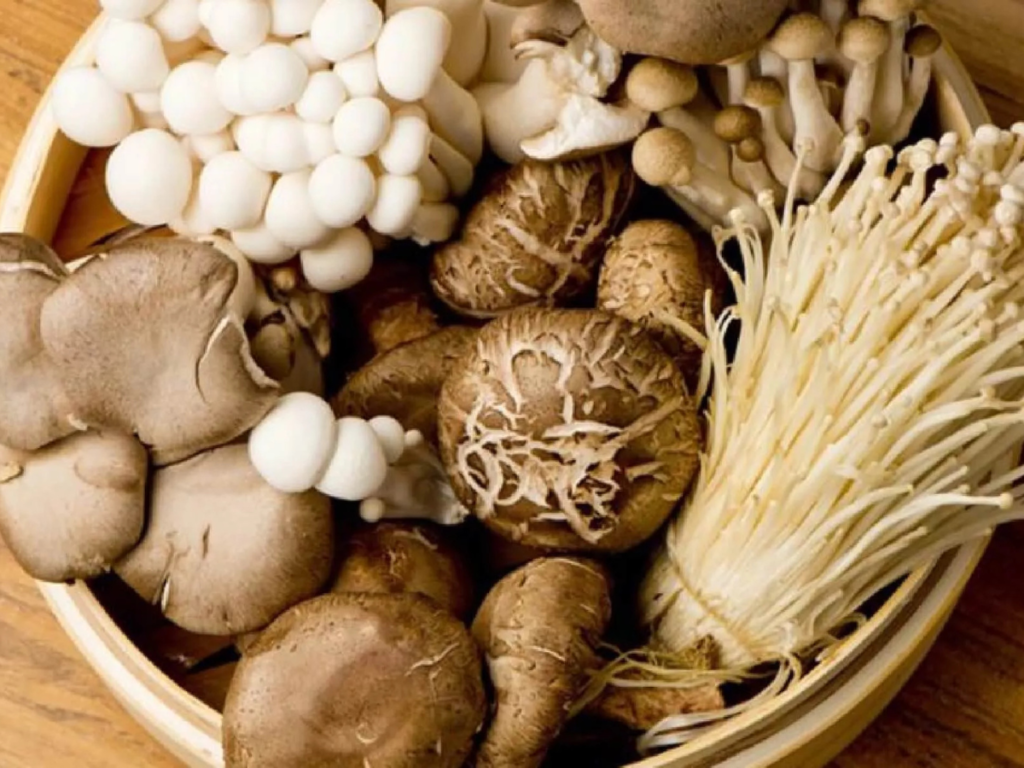
Mushrooms don’t just taste amazing—they also provide a serious immune boost. Varieties like shiitake, maitake, and reishi are renowned for their immune-stimulating properties, thanks to compounds like beta-glucans, which help activate essential cells in your immune defense system. Incorporate them into stir-fries, soups, or grill them as a hearty side dish. They’re both delicious and beneficial.
Benefits:
- High in beta-glucans, recognized for stimulating immune cells.
- Contains Selenium, B Vitamins, Zinc.
- Anti-Inflammatory and Antiviral Benefits.
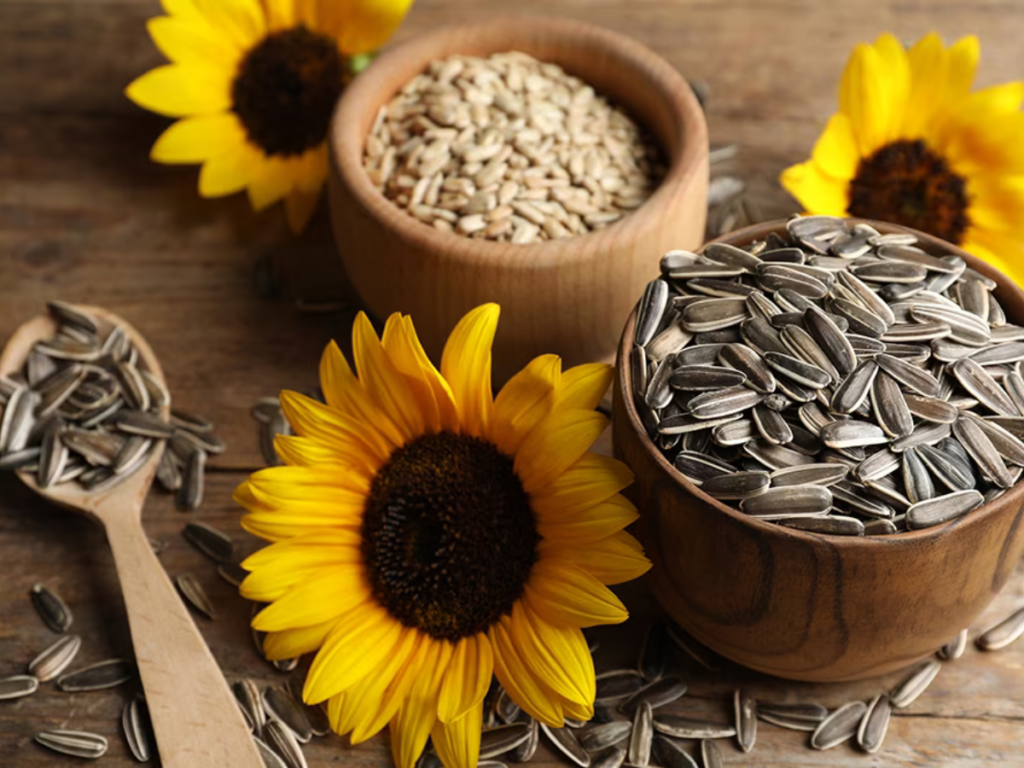
These small yet powerful seeds are an excellent source of vitamin E, an essential antioxidant that helps maintain a balanced immune system. They also provide selenium, magnesium, and healthy fats, all of which contribute to the activity and effectiveness of your immune cells.
Benefits:
- High in Vitamin E, boosts immune function
- Rich In Healthy Fats And Magnesium
- Enhances skin and cell health
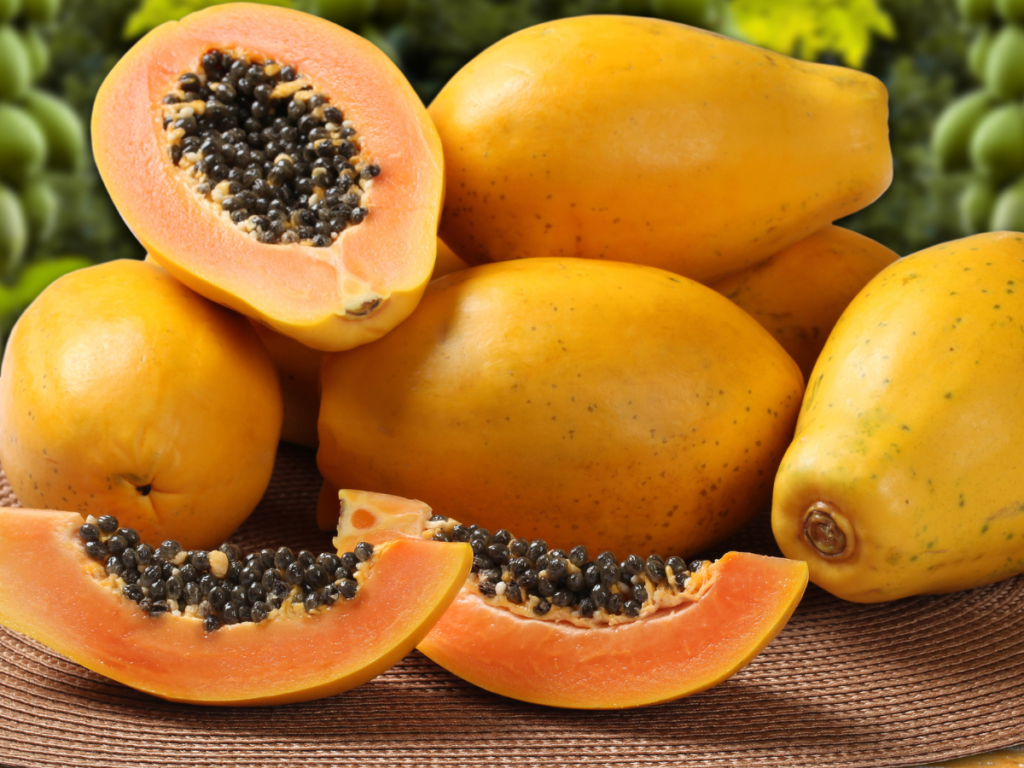
This tropical fruit isn’t just delicious—it’s a powerhouse of vitamin C. One medium papaya provides more than double your daily requirement. It’s also rich in digestive enzymes like papain, which help reduce inflammation and support gut health—an often underrated aspect of immune defense. Add it to smoothies, fruit bowls, or enjoy it on its own for a sweet, immune-boosting treat.
Benefits:
- High in Vitamin C, Boosts White Blood Cells
- Contains papain, an enzyme reducing inflammation.
- Contains Folate, Potassium, Vitamin A
- Aids Digestion and Gut Immunity

Kiwis are immune-boosting fruits. One kiwi has more vitamin C than an orange, plus nutrients like vitamin K, E, folate, and potassium. They also support respiratory health, making them ideal during allergy season or colds.
Benefits:
- Packed With Vitamin C to Enhance Immune Support.
- Contains Vitamins K and E for cell health.
- Rich in antioxidants fighting oxidative stress.
- Supports Healing and Respiration.

Chicken soup isn’t just an old-school remedy—it actually helps. Poultry, such as chicken and turkey, is rich in vitamin B6, which plays a vital role in producing red blood cells and keeping your immune system functioning well. Simmering bones into broth adds collagen and gelatin, which support gut and joint health. It serves as a perfect source of lean protein or can be slow-cooked into nutrient-rich broths.
Benefits:
- High In Vitamin B6, crucial for immune and nervous system health.
- Provides Lean Protein for Muscle Growth and Recovery
- Easy to digest and nourishing during illness.

Naturally sweet and vibrant, sweet potatoes are a rich source of beta carotene, which your body converts into vitamin A—a vital nutrient for maintaining the health of your skin and mucous membranes, your body’s first line of defence. Roast them, mash them, or air-fry them into crispy wedges for a nutritious enhancement to your plate.
Benefits:
- Rich in beta carotene, enhancing immune cell function.
- Converts to Vitamin A for skin and respiratory health
- High in fibre.
- Offers complex carbohydrates for steady energy levels.

Aside from being great for Instagram, avocados are packed with healthy monounsaturated fats, fibre, and vitamins C, E, B6, and K. They help reduce inflammation, enhance immune cell function, and assist in absorbing fat-soluble nutrients from other foods. Add to salads, spreads, or enjoy directly with a spoon and a dash of salt.
Benefits:
- High in vitamin E and healthy fats for immune support.
- Contains vitamins B6 and C, both essential for immune function.
- Facilitates the absorption of nutrients, particularly fat-soluble vitamins.
- Anti-inflammatory and promotes heart health.

Believe it or not, dark chocolate contains a powerful antioxidant called theobromine, which helps protect immune cells from oxidative stress. Choose chocolate that’s 70% cacao or higher to enjoy the benefits without too much added sugar. A small square each day? That’s self-care.
Benefits:
- Contains theobromine, which protects immune cells.
- Rich in antioxidants, such as flavonoids
- May help lower inflammation and stress levels
- Enhances mood and energy with a hint of indulgence.

Chia seeds offer a complete nutritional package. These tiny super-seeds provide fibre, omega-3 fatty acids, protein, and essential immune-supporting minerals like zinc and magnesium. Soak them in pudding, blend them into smoothies, or sprinkle them over oatmeal.
Benefits:
- Omega-3s Reduce Inflammation.
- Provide zinc and magnesium for immunity.
- Great Source Of Plant-Based Protein Source
Eating well is crucial, but your lifestyle habits are equally important. To genuinely support your immune system, you must care for your body from every aspect—rest, movement, mindset, and more. Combine these habits with nutritious foods, and you’ll create a defense system that operates at peak performance.
Try adding these habits into your routine:
- Sleep well
- Exercise regularly
- Manage stress
- Avoid smoking & limit alcohol
- Stay hydrated
- Get vitamin D
The immune system is your body’s natural defense mechanism: a complex network of cells, tissues, and organs that work together to protect you from harmful invaders such as bacteria, viruses, and toxins. It identifies and attacks anything that doesn’t belong, assisting you in fighting off infections and recovering from illness. A healthy immune system not only prevents sickness but also manages inflammation and supports overall wellness. To function optimally, it relies on proper nutrition, regular sleep, physical activity, and stress management.
The immune system detects and responds to anything in your body that it identifies as a threat—such as viruses, bacteria, and harmful toxins. It employs a layered defense strategy, starting with physical barriers like the skin and mucous membranes, followed by specialized immune cells that identify, attack, and eliminate foreign invaders. White blood cells are crucial, collaborating with antibodies and signalling proteins to target and destroy threats. After encountering a pathogen, the immune system can also “remember” it, enabling a quicker and more robust response if it appears again. This process is how the body develops immunity over time.

Your diet plays a crucial role in shaping how well your immune system functions. Nutrients such as vitamins A, C, D, and E, along with zinc, selenium, iron, and protein, are essential for the development and activation of immune cells. A balanced diet rich in whole foods—like fruits, vegetables, lean proteins, healthy fats, and fermented foods—helps reduce inflammation, supports gut health, and enhances your body’s ability to respond to infections. Conversely, diets high in refined sugars, ultra-processed foods, and trans fats can impair immune cell function and promote chronic inflammation. In simple terms, what you eat can either strengthen your body’s natural defenses or make you more vulnerable to illness.
A well-balanced diet provides crucial nutrients and promotes a healthy gut microbiome, which is vital for immune health. Approximately 70% of the immune system resides in the gut, meaning the bacterial population in your digestive tract affects your body’s response to pathogens. Foods high in fibre, prebiotics, and probiotics—such as leafy greens, garlic, onions, yogurt, and fermented vegetables—are essential for maintaining this balance. A healthy gut increases the likelihood of a rapid and effective immune response to potential threats.
What Are Top Vitamins For Immune System
Vitamin C, vitamin D, vitamin A, and vitamin E are essential vitamins for supporting your immune system. They help enhance white blood cell activity, reduce inflammation, and strengthen your body’s natural defenses.
How Quickly Can I Improve My Immune System Through Diet?
Improvements can begin within days, particularly by reducing processed foods and incorporating more nutrient-dense options. However, consistency is crucial—long-term immune strength arises from sustained healthy eating.
Are Supplements Necessary For Immune Support?
Not always. If you eat a balanced, whole-food diet, you may obtain everything you need. However, vitamin D, zinc, and probiotics are often supplemented, particularly if you’re deficient or have higher requirements.
What Are The Signs Of A Strong Immune System?
A strong immune system often manifests in a quick recovery from illness, infrequent infections, healthy skin, good digestion, and high energy levels. If you recover swiftly from colds and seldom fall ill, your immune system is likely functioning effectively.
Which Fruits & Vegetables Are Best For The Immune System?
Citrus fruits, berries, red bell peppers, broccoli, spinach, and sweet potatoes are among the best options. They are rich in vitamins A, C, and E, along with antioxidants that help protect and strengthen your immune system.































